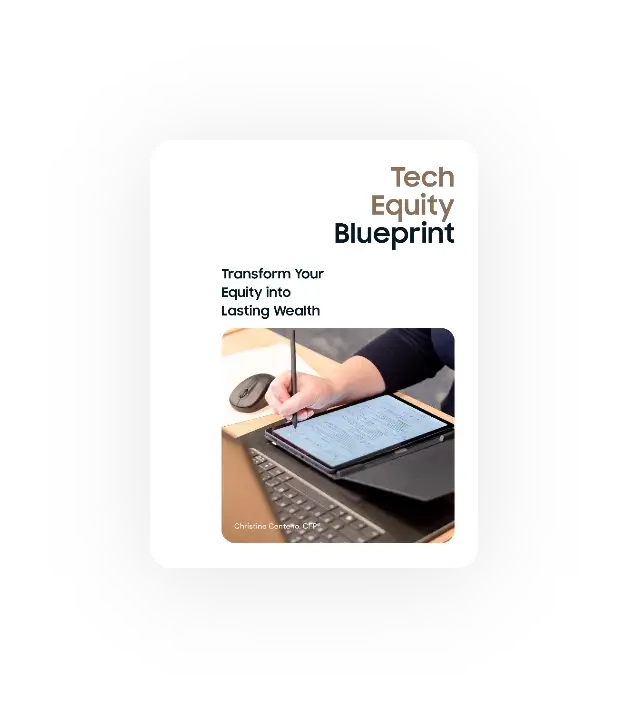BLOG / Financial Planning
The Basics of an Emergency Fund: What it is, Why it’s important and How to Build Your Own

In my last article, Part One: I’m a Financial Planner, Here’s How I Manage My Own Finances, I discussed the important role a cash reserve has played in my own finances. I admit emergency reserves are one of the most unsexy and rarely discussed topics in the world of finance. You’re probably not going to impress your friends at a cocktail party talking about your killer emergency fund.
However, I’d argue cash is one of the most fundamental and important parts of your overall financial well-being. Today, we’ll discuss what an emergency fund is, why it’s important and how to build your own. Whether you are a soon-to-be college grad or approaching retirement, you’ll find some helpful tips in today’s article.
What is an emergency fund?
It’s a cash reserve that can be used to pay for unexpected expenses such as car repairs, vet bills, or a new water heater. An emergency fund can also be used in case of a job loss to cover normal living expenses while you look for a new job. It saves you from having to use a credit card or take out a loan to cover unexpected expenses.
How is an emergency fund different than other savings?
An emergency fund should always be invested in cash and not the stock market. This is where most people get it wrong. It’s easy to be tempted to invest your cash in something that will earn more money than a boring old bank account. Don’t do it. You wouldn’t want your emergency fund invested in anything that may fluctuate in value since it’s intended to act as a safety net when you need it most.
Other types of savings, such as your investment or retirement accounts are typically for long-term goals such as retirement. These are generally invested in stocks and bonds and will fluctuate in value. Over time, these accounts will likely experience more growth in comparison to savings account. It’s okay if you are saving for something 10 or 20 years in the future. You have time on your side and can afford to have your investments go up and down in value.
How much should I have in my Emergency Fund?
This is where most people tend to grossly underestimate. Normally, you would want to have anywhere from 3-12 months of expenses saved in an emergency fund while you are working. The amount you need will depend on your job security, other sources of income, and whether or not you are the sole income earner for the household.
The more secure your job is (think seniority or tenure) or additional income sources you have (i.e. rental, trust, pension) typically the less you will need in your emergency fund. The closer you get to retirement, the more you will want to build your reserve.
I typically recommend retirees have at least two years of expenses in cash. I discuss the reasons why in my article, Planning for Retirement? Avoid These 5 Common Mistakes Retirees Make. A good financial planner will tell you to take care of building your reserve before they even talk investments.
How to start an emergency fund?
It’s easier than you think. Check out some tips below on how to start or increase your current emergency fund.
Start Small
Start saving something small each paycheck or each month. Make it a realistic amount, something that you can easily accomplish. The key is to start saving even if its $25 per pay period, over time it all adds up.
If you are not sure how much you are able to save, don’t just guess. There are many free tools out there that can help. I recommend using budgeting software like Mint to track your expenses over a few months. Monitor your spending closely to see where you can cut back. More importantly, you’ll also see what you normally have left over after paying bills. It takes the guesswork out of determining how much you are able to save.
Be consistent
Change your mindset, savings should not be an afterthought. Save every paycheck or every month. Don’t wait until the end of the year to transfer leftover funds to your emergency fund, you’ll be less likely to have funds left over.
Automate It
Set up an automatic transfer from your checking account to your savings account each month. Or, even better set up part of your direct deposit to go directly into a savings account. This way you won’t even see it and be tempted to spend extra dollars that sit in your checking account.
Take advantage of tax refunds or bonuses to increase savings
Instead of spending your entire tax return or bonus, aim to save a portion of it. Every little bit helps.
Being prepared and having a safety net in place will help save interest and lower anxiety when the unexpected occurs. Although the emergency fund gets no love, maybe it should.
In May 2018, the Federal Reserve released a report showing 40% of adults could not handle a $400 emergency expense. How do you stack up?
Interested in learning more? Read more about my firm, and check out my service options.
Disclaimer
The information on this site is provided “AS IS” and without warranties of any kind either express or implied. To the fullest extent permissible pursuant to applicable laws, Simplicity Wealth Management LLC (referred to as “SWM”) disclaims all warranties, express or implied, including, but not limited to, implied warranties of merchantability, non-infringement, and suitability for a particular purpose. SWM does not warrant that the information will be free from error. None of the information provided on this website is intended as investment, tax, accounting or legal advice, as an offer or solicitation of an offer to buy or sell, or as an endorsement of any company, security, fund, or other securities or non-securities offering. The information should not be relied upon for purposes of transacting securities or other investments. Your use of the information is at your sole risk. Under no circumstances shall SWM be liable for any direct, indirect, special or consequential damages that result from the use of, or the inability to use, the materials in this site, even if SWM or an SWM authorized representative has been advised of the possibility of such damages. In no event shall Simplicity Wealth Management have any liability to you for damages, losses, and causes of action for accessing this site. Information on this website should not be considered a solicitation to buy, an offer to sell, or a recommendation of any security in any jurisdiction where such offer, solicitation, or recommendation would be unlawful or unauthorized.




